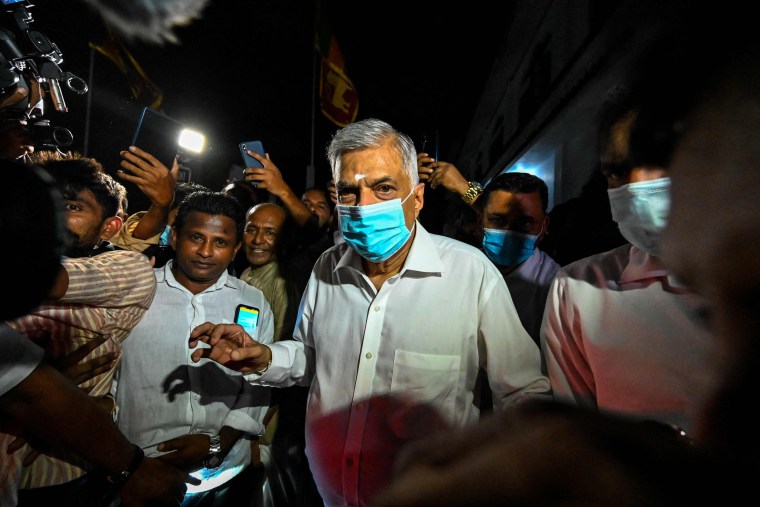COLOMBO, Sri Lanka — Five-time former Sri Lankan Prime Minister Ranil Wickremesinghe was reappointed Thursday in an effort to bring stability to the island nation, engulfed in a political and economic crisis.
Wickremesinghe, a contentious choice by President Gotabaya Rajapaksa, took his oath in a ceremony at the president’s residence. Protesters have blocked the entrance to the president’s office for more than a month.
The president’s brother, Mahinda Rajakapsa, resigned as prime minister on Monday following violent attacks by supporters on peaceful anti-government protesters. His resignation automatically dissolved the Cabinet, leaving an administrative vacuum.
The president’s selection of Wickremesinghe, 73, is an attempt to end violence triggered by the crisis and restore international credibility as the government negotiates a bailout package with the International Monetary Fund.

On Wednesday, authorities deployed armored vehicles and troops in the streets of the capital after attacks on protesters triggered a wave of violence across the country. Nine people died and more than 200 were injured.
Security forces have been ordered to shoot people deemed to be participating in the violence, as sporadic acts of arson and vandalism continue despite a strict nationwide curfew that began Monday evening.
For weeks, protesters have been demanding that both Rajapaksas resign over a debt crisis that has nearly bankrupted the country and caused severe shortages of fuel, food and other essentials.
Some opposition politicians and religious leaders objected to Wickremesinghe’s appointment, saying citizens wanted sweeping reforms.
Opposition lawmaker Anura Dissananayake said the choice of Wickremesinghe was more about protecting the president and his family from public anger over his role in the economic crisis than solving the country’s problems.
When he was previously foreign minister from 2015 to 2019, Wickremesinghe was accused of protecting Rajapaksa’s powerful family from allegations of corruption and other wrongdoing.
Buddhist and Catholic clergy also objected to Wickremesinghe’s selection.
“This decision has been taken totally disregarding the aspirations of the people who are protesting today. The protests can only get worse by this decision,” said the Rev. Omalpe Sobitha a senior Buddhist monk.
Catholic Archbishop of Colombo Cardinal Malcolm Ranjith said for the country to move forward from the crisis, “we need a complete change of the system.”
Political analyst Ranga Jayasuriya said by appointing Wickremesinghe as prime minister, “President Gotabaya Rajapaksa did not put out the fire, but added fuel on it.”
“People would be angrier with this snub of appointing a man who has no public support,” Jayasuriya tweeted.
U.S. Ambassador to Sri Lanka Julie Chung said she is looking forward to working with Wickremesinghe, and that his appointment and “the quick formation of an inclusive government are first steps to addressing the crisis and promoting stability.”
“We encourage meaningful progress at the IMF and long-term solutions that meet the needs of all Sri Lankans,” she said in a tweet.
Sri Lanka is nearly bankrupt and has suspended repayments of $7 billion in foreign loans due this year. The IMF has said any short or long-term assistance depends on the outcome of talks with creditors on loan restructuring. Sri Lanka must repay about $25 billion in foreign loans by 2026 out of a current total foreign debt of $51 billion.
The finance ministry said earlier this month that the country’s usable foreign reserves have plummeted to $25 million.
The foreign currency shortage has forced a sharp decline in imports, leading to severe shortages of essentials such as fuel, cooking gas, food and medicine. For months, people have had to stand in long lines to buy limited supplies, with many returning empty-handed.